Picture this:
It’s mid-December. You’re browsing the dilapidated shelves of your favorite used bookstore. Up and down the aisles, you quietly meander, unsure what exactly it is you’re looking for. Perhaps you arrived here with the intention of buying your older brother a book on his latest hyper-fixation for Christmas. Perhaps, just before you walked in, you told yourself, “I’m only here to look in one section.” Perhaps you’re still convinced you’ll escape the clutches of these hallowed halls (okay, a mildew-y basement in Lower Manhattan) unscathed with open arms and a full bank account.
Sadly, you’re wrong. Two hours and $85 later, you leave with something in your reusable tote bag that jumped you in the alleyway and took you for all you had.
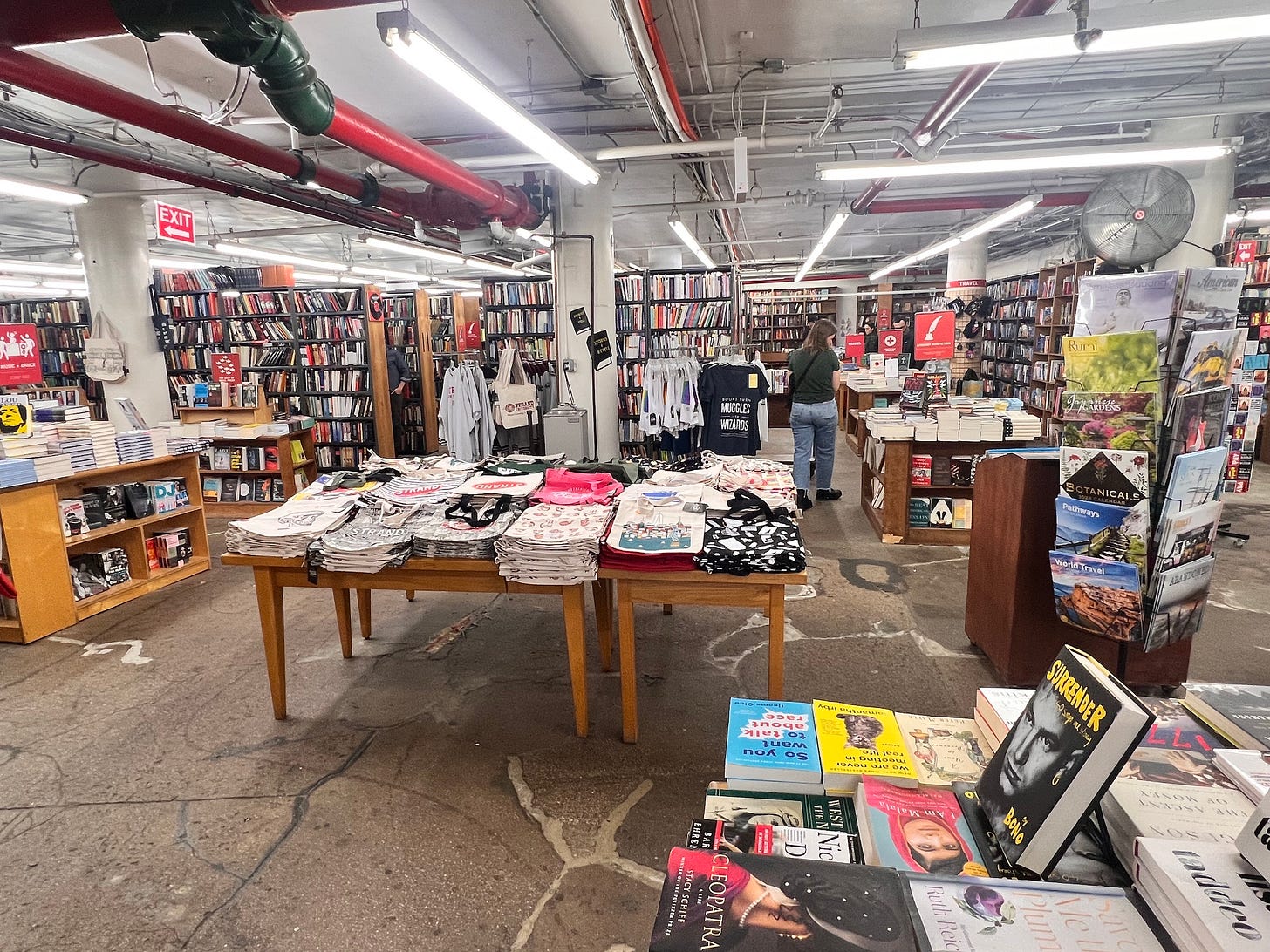
See, I believe there are just some books that are meant to find you. Out of the blue, they make themselves known and say “Hey you! Yeah, you with the dumbass look on your face. I’m here to change your fucking life.” These sorts of books only come around a few times in your life. Like lovers you meet in your early-twenties or strangers you bond with in-between concert sets, they change your entire approach to life in an instant and always leaving you wanting more.
For me, it’s only happened a few times— or five, to be exact. Five books pushed me to the ground like a bully, taught me the cool girl gospel like a sage, and then sent me back on my way like a Good Samaritan. Almost like, it never happened. Except it did happen. My life tilted on its axis every time. If this has ever happened to you, you’ll know what I mean.
Five Books. Five Discoveries. Five Moments. Five Authors. Five Stories.
These aren’t book reviews, so much as long-overdue thank you cards. Thank you for changing my life. Thank you for putting me into a new state of mind. Thank you for giving me purpose. Thank you for showing me I’m not alone.
These are the books I can’t recommend enough.
“I’ve always known that a book will find you when you need to be found...”
- Kate Bolick, Spinster
1. I Could Tell You Stories: Sojourns in the Land of Memory by Patricia Hampl
This first book found me in a now-defunct, used Christian Bookstore in the Summer of 2017. I was at the beach for a week with my best friend from high school. Both self-proclaimed introverts, we’d exhausted every other source of summer beach fun: tanning on the beach (I burned), swimming in the ocean (yuck), and playing a round of putt-putt golf (actually enjoyable!) So, in typical, introverted fashion, we went to the island’s only used bookstore.
Would you believe it, I don’t even remember the name. All I remember is the store owner was a nice, older lady who enjoyed buying and reselling Christian Romance Fiction. You know the ones—the mass market paperbacks with various Amish women on the covers you could buy at the mall bookstores of yesteryear, where they sold copies of the King James Bible next to Daily Meditations for Women and NEEDTOBREATHE CDs? Yeah, that kind.
Searching through shelves and shelves of that genre was an entertaining challenge. Was there any needle of substance in this haystack of curse-free, “waiting for marriage” abstinence?
Surprisingly, there was.
I’m not exactly sure why this bookstore was in possession of Patricia Hampl’s memoir. Of all writers, why this little-known wordsmith of dance, poetry, and memory? Maybe it was the unassuming cover image of a suburban, white house surrounded by trees. It suggested the book was perfect for reading on a humid day at the beach. Maybe it was the National Book Critics Circle Award Finalist Stamp plastered on the front cover. It suggested some amount of success and prestige. Maybe it was enough to tempt the right kind of reader, but certainly not enough to display it in the window for the casual browser.
Whatever it was, I thought nothing of it at the time. Compared to the two books of accidentally-religious historical fiction already in my arms, coming across this work of nonfiction was tantamount to striking gold in nineteenth-century California: ridiculously lucky and not so easily reproduced.
I expected to read two chapters of this book on the beach before letting it join its companions in my mom’s bedside vacation stack. Fortunately for me, its contents kept me up into the wee hours of the morning. I was desperate to finish it. Not only is Hampl’s writing exquisite, her individual essays read like a who’s who of nineteen-year-old Abby’s taste in literature and poetry: predictably, Walt Whitman, Sylvia Plath, Anne Frank, & Michel de Montaigne.
Beyond that, this book gave me a sort of crash course in personal essays & memoir. It expanded my idea of what memory and reality really mean, particularly in retrospective moments when you think you remember something so clearly. Then, someone reminds you that, oh, it did not, in fact, happen that way or at all.
Most incredibly, this book fostered one of my truest and deepest love affairs to date: my desire to visit, work, and live in the city of Prague.
“In the '70s, Prague was pewter gray in spirit, broken and oddly adrift in the middle of Europe. The most golden thing about it then was its silence. Loneliness was its chief allure, radiating a sullen romance bred of cigarette smoke and satire.”
-Patricia Hampl
I found myself enamored with Prague as a high school senior while reading another memoir for my European History class, Under A Cruel Star by Heda Margolius Kovály. This book first sparked my fascination with the culture, literature, and history of a country I’d never even visited: The Czech Republic.
When Hampl’s book found me and led me to the Prague Summer Writing Program, my life shifted into sharp focus. Not only was I accepted to this Summer Writing Program on my own merit, I also had the opportunity to meet my authorial hero in the flesh. As one of the founding teachers of that program, it felt like Hampl was leading me to my fortune: “Come to the city of your dreams for a summer of art, poetry, and honest-to-God instruction from professional writers!” The Summer of 2018 was also the 50th Anniversary of the Prague Spring. Witnessing that would have made every single dream of history major Abby come true.
Alas, it was not to be. Something about the dangers of traveling as a single, young woman overseas and the inconvenience of having to shell out $1,000 cash to make that happen—yeah, it was a long-shot. Despite every artistic impulse telling me to go, I let myself be talked out of it and, instead, spent the summer crying over a loser-y actor who rejected me harshly (in bed) after a month of careful courting.
I don’t think I’ve ever been as optimistic about myself and my abilities as I was in the Spring of 2018. It was remarkably idealistic of me to believe all of that was actually coming my way. Still, I miss the courage and gumption that kid must have had to submit her decidedly less-than-adequate writing for foreign strangers to read and critique.
Even now, six years later, I regret not going on that adventure. I should have gone. That much is obvious to me. That’s what I mean when I say that books have the power to find you, shake you up, and change the direction of your life.
This one certainly set me on a new and particular path.
2. Tell Me If You’re Lying: Essays by Sarah Sweeney
The second book found me in my undergraduate campus bookstore. If you’ve never visited a campus bookstore before, they’re sort of like if Barnes & Noble and the public library had a really ugly love child. You lose all the good qualities of both. The only books you’ll find there are the ones you’ll fill with sticky notes, highlighter ink, and tear stains from your caffeine-fueled all-nighters. Dress it up in whatever corporate color scheme from the early 2000s they picked to modernize the “brand,” and you’ve got a university bookstore (mine happened to be Blue, Grey, & Gold).
As a chronic overachiever, I had already pre-ordered my textbooks for the Fall semester. After waiting in the pick-up line for forty-five minutes, the bookstore employees dropped a whopping pile of novels and memoirs on the counter in front of me. See, I’d signed up to take a class on Women’s Erotica in an effort to get out of my comfort zone. I was also nineteen and painfully embarrassed by my sexual inexperience. Nervous about the prospect of making an utter fool of myself, I wanted to get a head-start on researching my “textbooks” before the semester began. For the most part, each book had some Wikipedia entry full of quotes, controversies, and reviews attached to it. There was one, however, I’d never heard of: Sarah Sweeney’s Tell Me If You’re Lying.
On the first day of class, the professor informed us we’d be reading this book first. Thinking nothing of it beyond taking a few notes for our class discussion, I started the book, intent to learn just enough to make a good first impression. Instead, this book brought me face-to-face with my sweet tea-drinkin’, hootin’ and hollerin’, white trash childhood—but you know, in a good way!
Each new essay I read, I felt more and more of a kinship to Sweeney. Dancing naked to Madonna? Same! Staying with that side of your Southern family for the Summer? Cringe-inducing, but so real. Taking care of your dying father and overcoming decades of internalized shame and abuse? God, yeah. She got me. It felt a little like I was reading a version of my life that took place in an alternative universe, told by someone with more wit, whimsy, and wisdom in their pinky finger than I possessed in my entire body.
This incredible reading experience was heightened by my decision to send a borderline-fangirl email to Sarah that same semester. I told her how much her essays meant to me. I told her that her courage to write this book made me feel valid in the life I was living: a burgeoning Riot Grrrl of the South with pink hair, a thing for older men, and a burning desire to get the fuck out. Her subsequent, thoughtful responses were no small thing. The fact that she’d taken time out of her day to write to a stranger was a huge deal. I talked about it with anyone who would listen for months afterwards. I even made a zine about the whole exchange!
In retrospect, I can trace almost everything back to this class and to this book. Zines, music, academia, writing— all of it stemmed from the four months I spent in that classroom. Even now, living in New York and struggling to relate to my Northeastern peers, I am reminded of Sarah’s essay: A Man Named Tex. That is precisely how it feels to be a Southern woman in a Northeastern climate, relying almost exclusively on the kindness of creepy neighbor guys who have their own odd sense of charm.
The fact that I still, after meeting Sarah on Zoom and becoming mutuals with her on Instagram, feel so close to this slim book of essays is a testament to how much I needed it. It’s a testament to how much I still need it. It remains in a stack on my bedside table, alongside the other books on this list, for whenever I want to relive the miracle.
3. Spinster: Making a Life of One’s Own by Kate Bolick
Kate Bolick’s hilarious and deeply relatable memoir found me at a Barnes & Noble in Greensboro, North Carolina. Fresh off of Patricia Hampl’s call to action and Sarah Sweeney’s inspiring embrace of the unknown, Kate Bolick beckoned me into her beautiful world of single women writers.
Sitting on the carpeted floor of that college-town Barnes & Noble, I read the first three chapters of Spinster in one sitting. From Bolick’s childhood and teenage shenanigans, to her thoughtful and rich explorations of the “single woman” or “spinster” as a cultural phenomenon, I was entranced by her confidence and agency. A woman in her 40s made her way onto the New York Times Best Seller List with a book about being SINGLE? As a single, 20-year-old girl on the cusp of womanhood, I felt seen and understood in my spinster-y, introverted ways.
Equally as inspiring are Bolick’s revolving cast of characters, aptly coined her “Awakeners.” Kate introduced me to Edna St. Vincent Millay, Maeve Brennan, Neith Boyce, Edith Wharton, and Charlotte Perkins Gilman, all unmarried (mostly) women, visionaries, and writers in their own right and time.
With the lives, works, and stories of five great women, Bolick crafts a sweet blend of history, social commentary, and memoir to create the perfect cocktail for a young singleton like me in search of acceptance and quality solitude.
On a more subdued note, one of the chapters that continues to reach out to me, especially this time of year, is “The Spinster Wish.” Bolick’s reflection on the passing of her mother is still one of the most moving pieces of writing I’ve ever read. I felt seen by this book in more ways than I could have ever imagined. Coupled with Sarah Sweeney’s thoughts on the loss of her father, Spinster gave me a sense of acceptance about my own father’s premature death. Reading about their experiences, whilst processing my own grief, was the exact kind of affirmation I needed. I’ve since written about my loss with more clarity and courage than I could have, had I not found their words when I did.
Spinster is the final book in my “Fuck Men” Trilogy. Of all the lessons these three incredible women taught me, paramount among them was the notion that my life could be lived without the specter of other people’s opinions hanging over me, especially those of men. As someone who had, for so long, defined my life, choices, and thoughts by the men in my life (my dead father, a few of my exes, and every male teacher who ever took an interest in me), seeing three women discuss their joys, sorrows, loves, and experiences so boldly was akin to seeing the New York City skyline from a plane for the first time: an all-encompassing panorama of history, steel, and sky, forever changed by the immensity of the Big Picture.
4. Appalachian Elegy: Poetry and Place by bell hooks
For anyone out there who’s read Hillbilly Elegy by JD Vance and thought “Oh, all Appalachian people must be Trump-supporting, racist hicks,” I urge you all to read Appalachian Elegy by bell hooks instead and take your copy of Hillbilly Elegy straight to any used bookstore in your area, so that it may take its place beside the other unfinished copies left by the people who, like me, got fed up with Vance’s bullshit. Once you read this small book of thought-provoking poems, you’ll never see Appalachia, poetry, or race in the American South quite the same way again.
This book found me at my university library in the middle of my senior thesis. I was deeply embedded in those beloved stacks, furiously researching and writing about the history, culture, and identity of my favorite place in the world. As a history and gender studies double major, I’d already read bell hooks quite a bit, particularly her books, All About Love and Feminism is for Everyone. Despite this early classroom exposure, I only became aware that hooks was originally from Southern Appalachia when I found this slim paperback stuck between two larger volumes on Appalachian poetry and literature.
Sharing a common place of origin with one of my favorite feminist theorists and writers is, to this day, deeply humbling and truly transformative. It is also tinged with grief, as Appalachia, often considered one of the most biodiverse and beautiful places on the Earth, is exploited, colonized, and destroyed by corporate greed, Big Coal, and unwilling or uncaring government officials.
Seeing my home place through the eyes of someone like bell hooks showed me just how little I knew about it. Sure, I spent twelve years of my young life there. Yes, I spent many months studying Appalachia as an undergraduate student. I’d done it all with hope of finding some lasting connection with what I’d lost there.
In this mighty book of poetry, I discovered something else, something infinitely more important. For the first time, I recognized those folks too often erased from its white-washed history. Appalachia is not inherently white, nor is it a place completely devoid of multicultural diversity. Seeing Appalachia from this new perspective led me to write my senior thesis about what it means to hold multiple Appalachian identities, beyond “whiteness,” “poverty,” and “Mountain Dew mouth” stereotypes. These poems also instilled in me a profound admiration for where I came from, how I got here, and where I’m going next.
5. Love Is A Mixtape: Life and Loss, One Song at a Time by Rob Sheffield
The fifth & final book on this list found me in the basement of The Strand this time last year. I went there looking for a book on sewing for my older brother. I was planning on buying Christmas gifts for other people. I was trying to get in and out of there in thirty minutes or less.
This book had other plans.
Having developed a pretty intense need to write and create over the last five years, Rob Sheffield’s Love Is a Mix Tape: Life and Loss, One Song at a Time became the gift that kept on giving. Not only does the majority of the book take place in Appalachia, but the idea that music and grief are so inextricably linked spoke to me in a BIG way.
The bulk of the memoir is about Rob’s first wife, Renee. Rob tells their short, but remarkable story in screaming color. He explains how they met in a Charlottesville bar and bonded over Big Star. He details how they fell in love, both with each other and bands like Pavement, L7, and Nirvana. Finally, he recounts how he lost Renee too soon and suddenly became a shell of his former self, unsure if he’d ever recover. It all culminates in his moving to Brooklyn and finding new reasons to keep going.
Each chapter features a mixtape track listing, through which Rob blends his incredible stories and deeply personal thoughts. I’ve never felt so seen by a book before. Sometimes, it’s all I can do NOT to open Spotify and start a new playlist about whatever it is I’m feeling, doing, or needing. Music is one of the only things to ever consistently get me through all of life’s tribulations, be they break-ups, death, divorce, chronic disease, and/or never-ending financial debt. It gives me a sense of hope and humor about the world.
That’s what’s so amazing about this book. To read someone’s inner-most thoughts and feelings set to the soundtrack of their life was like coming home after a long time away and finding there were always others like you. They waited patiently amongst the shelves of every bookstore and library, ready for the moment your fingers would graze their spines and you’d realize: “Oh, there you are. I’ve been looking for you.”
“When we die, we will turn into songs, and we will hear each other and remember each other.”
― Rob Sheffield, Love Is a Mix Tape
Grief and memory are sown into the seams of all of these books. It’s no surprise both topics take up the bulk of my own writing. Building off the shoulders of such giants, I always feel an overwhelming sense of urgency to write about the loss I’ve experienced.
In a way, grief has become my muse. That is where I feel most at home. This kind of pain is what I know. Grief pervades our world constantly, and learning how to live with it and through it are the only ways to move forward. I take a lesson from the authors above and begin to parse through the pain on the page.




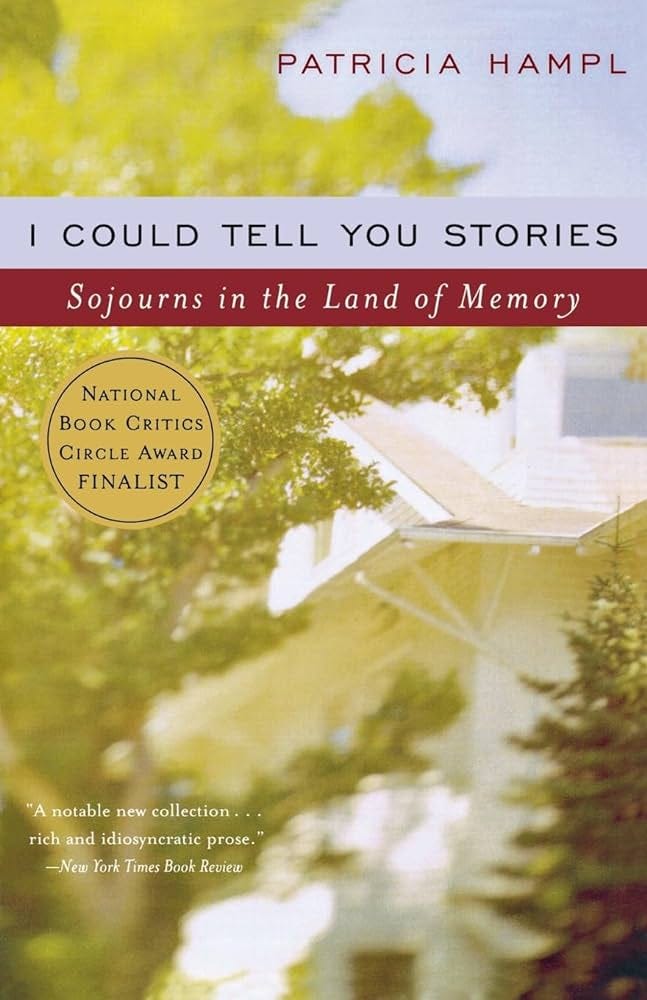
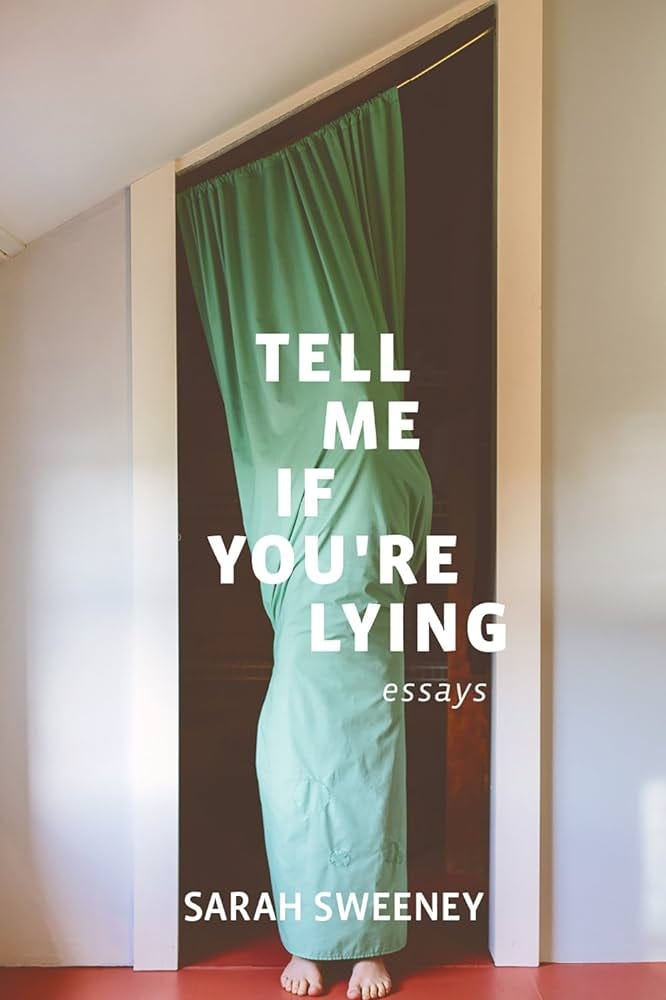
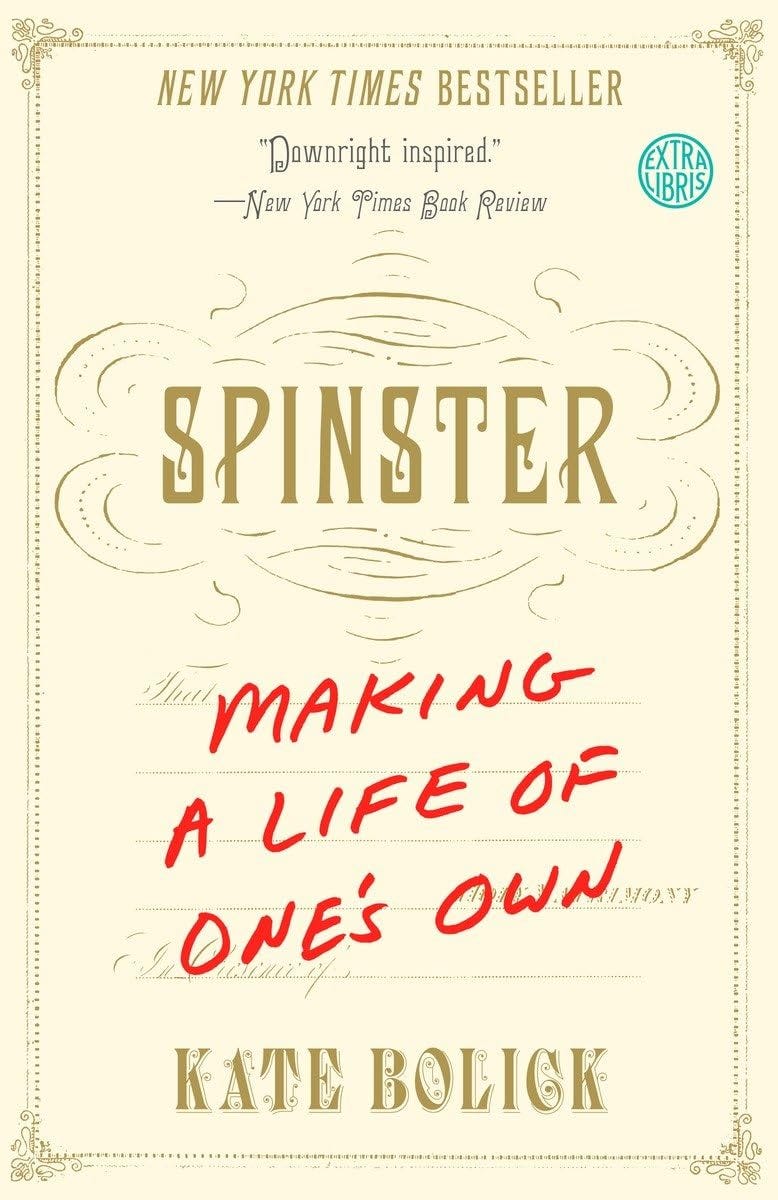
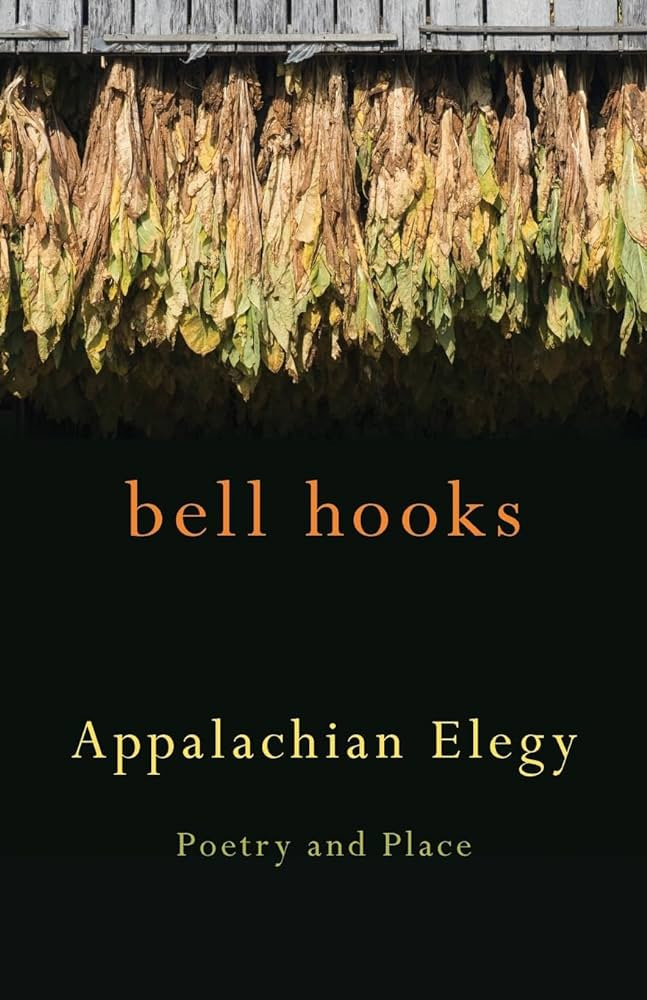
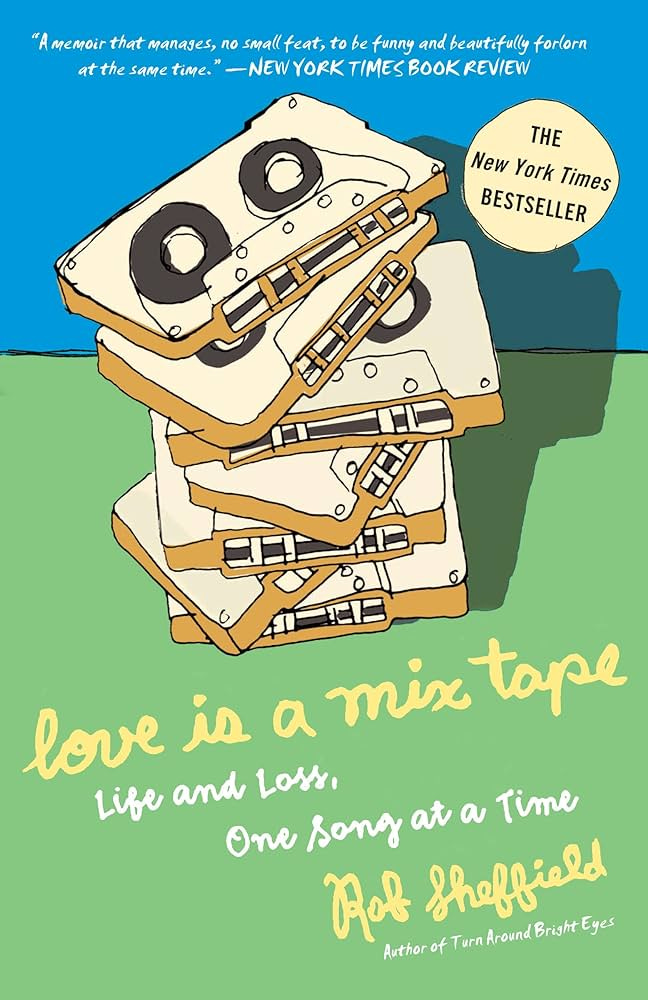

"I cannot go. Being of these hills I cannot pass beyond."
I love that bell hooks book....maybe it should have been added to the class....